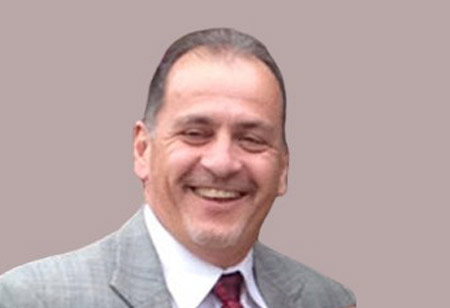Thank you for Subscribing to Healthcare Business Review Weekly Brief

Driving Factors and Innovations in Healthcare Real Estate Services for Value-Based and Patient-Centered Care
Healthcare Business Review
In an interview with Care New England, Mark Yerrick, System Vice President delves into the long term impact of healthcare real estate services in re-imagining a more efficient, convenient, and accessible healthcare system, as well as the innovative approaches being employed to elevate the standards of patient care.
What are the significant factors that are driving the need for a shift towards healthcare services that are value-based and patient-centered?
From my perspective this is something that has been in the works for a very long time. I can remember attending seminars on Patient Centered Care over 15 years ago. However, as I think of this, the Healthcare system spends so much effort on patient satisfaction which is much different than value-based or patient-centered care. For example, Patient Satisfaction focuses on how we (Healthcare) are doing treating you. I think you’ll find that almost all surveys focus on that concept. Were we courteous? Did we communicate well? Did we provide quality care?
With the transition to value-based and patient-centered care, healthcare is focusing more on the patient. The survey questions should transition to the patient. How are you? How did the care we provide make you feel? Is there anything concerning you that we can help with?
What is your opinion on the long-term impact of healthcare real estate services in re-imagining a more efficient, convenient, and accessible health system?
There is going to be a larger shift to outpatient care. There are many factors that are going to influence this. These consist of improved technology with computer systems and equipment that will allow procedures to be completed in an outpatient setting.
This will cause a major shift in the real estate needs of healthcare organizations. Ambulatory surgery centers (ASCs) will continue to be built to allow for procedures that were done in a hospital a few years ago can now be completed in an outpatient setting.
More and more medical office buildings (MOBs) will be built that will offer primary care physicians located in the same building as specialty practices. You will also see diagnostic imaging, lab services and rehabilitation services located in the MOBs.
What are some of the new innovations in the healthcare real estate space that focus on elevating the standards of patient care?
I believe the phrase of “one stop shopping” applies here. Patients do not want to visit numerous locations for their care.
They want to be able to receive treatment for all their clinical needs at one place. The outpatient MOBs and ASCs will need to be built to assure the clinical services are available at one site.
These spaces will also need to cater to the family members of those receiving care. Large, comfortable waiting rooms, cafes/delis for the family or support person to visit while their significant others are receiving care.
Before your stint at Care New England, what experiences empowered you to gain deep expertise in healthcare real estate services and develop ideas on enhancing the quality and accessibility of healthcare for all?
I have been in healthcare leadership for nearly 40 years. During this time, I have worked at numerous hospitals and healthcare systems. The majority of these were in the mid-Atlantic and northeast parts of the country. I have been involved with facilities management at these locations and real estate is typically a component of the facilities management umbrella.
Over this time, I’ve been involved with acquiring property and acquiring physician practices. Each of these brings its own sets of challenges which we navigate through. Additionally, I’ve had the opportunity to oversee the constructing of MOB’s, Cancer Centers, ASCs, new patient towers and complete floor renovations.
As I think of this, the healthcare system spends so much effort on patient satisfaction which is much different than value-based or patient-centered care.
Each of these projects allowed me to work with different architects and construction management companies. You never stop learning and putting what you’ve learned into the next project you have.
On an ending note, what is your advice for other senior leaders and CXOs working in the healthcare real estate services space?
I think the most important thing is to continue to have an open mind and welcome change. You can no longer rely on “that’s the way we’ve always done it”. You need to adapt to what is going on in the healthcare industry and to continue to put yourself in a position to learn. I am no expert in any one field, but I consider myself to be versed in many. There are subject matter experts (SMEs) that you should rely on to help you and your healthcare system grow to meet the needs of the patients we serve.









